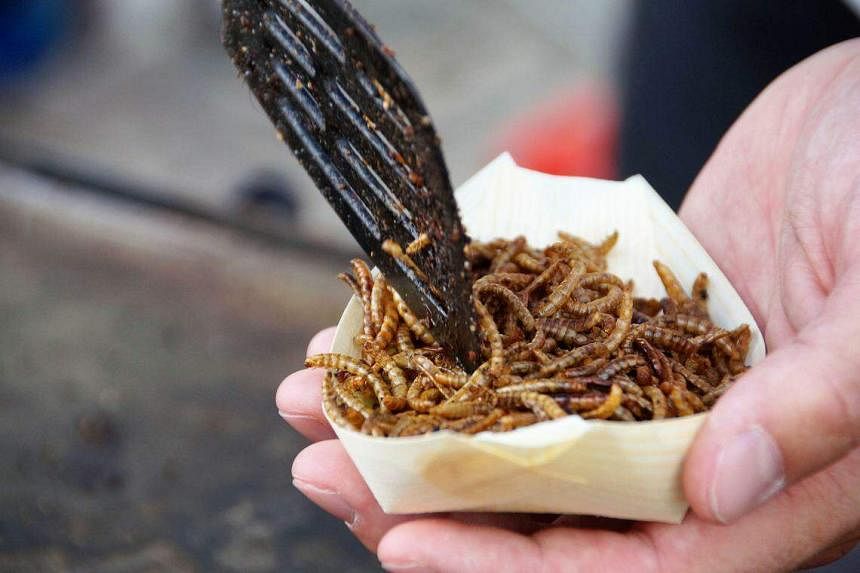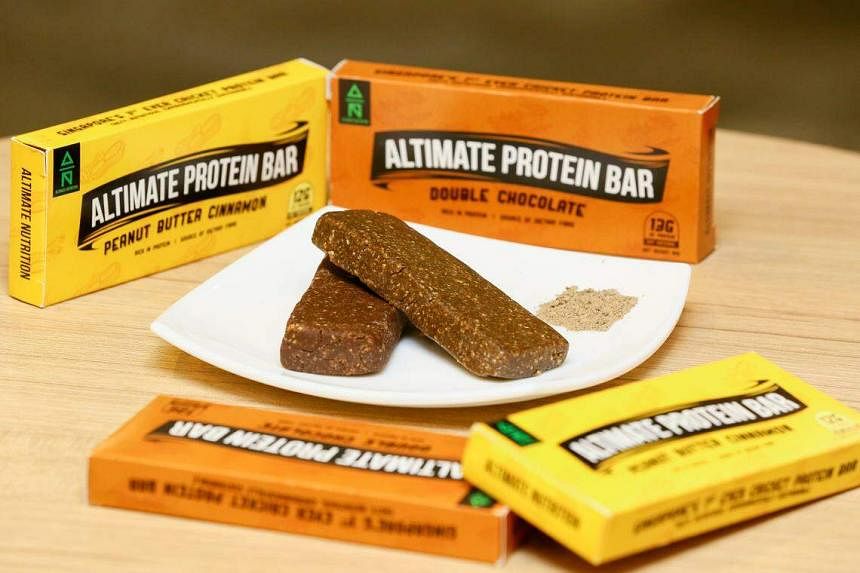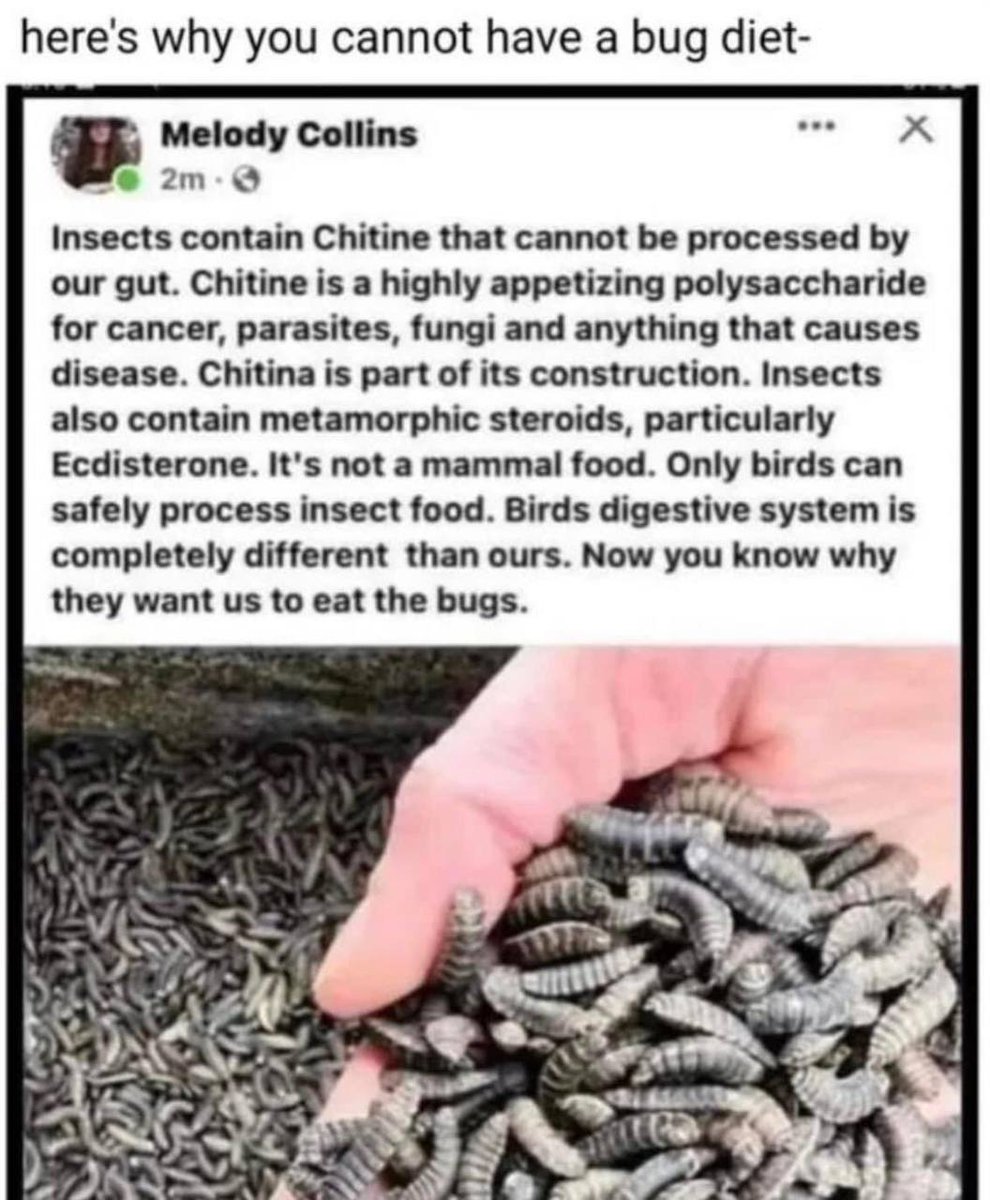Got to start eating insect sooner or later.
Singapore to approve 16 species of insects like crickets and grasshoppers to be sold as food
The FAO has been promoting insects for human consumption, in a bid to feed the world’s growing population in a more affordable way. PHOTO: PIXABAY
Cheryl Tan
UPDATED
APR 7, 2023
SINGAPORE – Foodies here may soon get to chomp on insects in eateries, or as fried snacks and protein bars. Also on the menu: silkworm cocoons.
Sixteen species of insects, such as crickets, silkworms and grasshoppers, will receive the green light from the Singapore Food Agency (SFA) for human consumption in the second half of 2023.
The approval of the insects for consumption will be subject to food safety requirements, including treatment processes to kill pathogens and ensuring that they are packed and stored safely to prevent contamination.
The move comes after the agency held a public consultation exercise from Oct 5 to Dec 4, 2022, on the regulation of insects and insect products. It received 53 responses. These ranged from scepticism to feedback and concerns from industry players planning to bring in insect products.
SFA
told The Straits Times in October 2022 that it had conducted a scientific review and assessed that specific species of insects with a history of human consumption can be eaten, either directly, or made into items such as snacks.
The United Nations’ Food and Agriculture Organisation (FAO) has in recent years been promoting insects for human consumption in a bid to feed the world’s growing population in a more affordable and sustainable way.
FAO had said that edible insects provide high-quality nutrition, require less feed and emit less greenhouse gases than farmed livestock.
Besides insects, SFA said it will also permit the cocoons of
Bombyx mori, better known as silkworms, for human consumption in Singapore, given that these have been consumed in China and Malaysia, among other places.
Silkworms produce cocoons with silk threads, which are composed of two main proteins, known as sericin and fibroin.
While silk has traditionally been used to produce textiles, ST understands that technological developments in recent years have allowed companies to turn these silk threads into food and edible coatings, with many Japanese biotech firms making strides in this area.
SFA said that it will also permit fibroin from silkworm cocoons for consumption, given that the protein has been approved in South Korea and Japan, and is “generally recognised as safe” by the United States’ Food and Drug Administration.
But those looking to introduce black soldier fly larvae as food will have to get approval from SFA under its novel foods framework as there is no known history of human consumption.
Black soldier fly larvae are used in Singapore to process food waste. The larvae consume up to four times their body weight in waste and, in turn, excrete frass, which is used as fertiliser. The larvae are used as fish and shrimp feed.
However, industry players remain divided on the scale of consumer demand, though many are already gearing up for product launches.
Mr Christopher Leow, chief executive and co-founder of Future Protein Solutions, said his company is coming up with a few exciting concepts using cricket protein, and is thinking of ways to market insect products to entice consumers.
“A lot more education would be needed to boost public acceptance of the consumption of insects. So, it might take a while before these insects become mainstream at local restaurants,” he added.
Globally, both high-end restaurants and casual eateries offering dishes with insects like crickets remain niche, so a lot more needs to be done to normalise insect consumption, Mr Leow noted.
Some Chinese and Korean restaurants in Singapore which were selling silkworms without approval took these items off the menu following enforcement action taken by SFA, according to a report by CNA.
Asia Insect Farm Solutions co-founder Yuvanesh T.S. said that his firm is also planning a product launch, and is expecting the buzz generated around edible insects to stir up demand. However, he added that it remains to be seen whether eating insects will be a trend that sticks with Singaporeans.
The home-grown firm produces cricket powder for use in flour and cookies, and is currently selling it to customers in the US and Britain.
Mr Gavriel Tan, co-founder of Altimate Nutrition, a start-up from Republic Polytechnic, said the company is preparing for mass production, and is liaising with its manufacturer in Thailand to deliver its first batch of
flavoured cricket protein bars. These will be ready for sale upon SFA’s approval.
Altimate Nutrition produces protein bars made with cricket flour. PHOTO: LIANHE ZAOBAO FILE
The company has a partnership with the House of Seafood restaurant to develop insect-based recipes. They are exploring ideas like cricket dip and sambal crab with cricket.
Mr Tan noted that consumers are split when it comes to insect protein, with some finding its consumption “intriguing”, while others are repulsed.
“To address this, we intend to continue organising workshops and seminars to raise awareness about the benefits of insect-based foods,” he said.
Professor William Chen, director of the Food Science and Technology Programme at Nanyang Technological University, said that while the consumption of insects is “no stranger” to a number of Asian countries, the direct introduction of “whole insects” in restaurant menus here may still be challenging due to the general negative perception of insects.
“One way to integrate insects into our diet would be to add insect proteins into familiar foods such as pasta, with proper labelling. With no sight of the whole insects and no change in the taste – I can safely say this after tasting spaghetti bolognese made with mealworm protein-based pasta – consumers would slowly accept insect-based foods,” he added.










